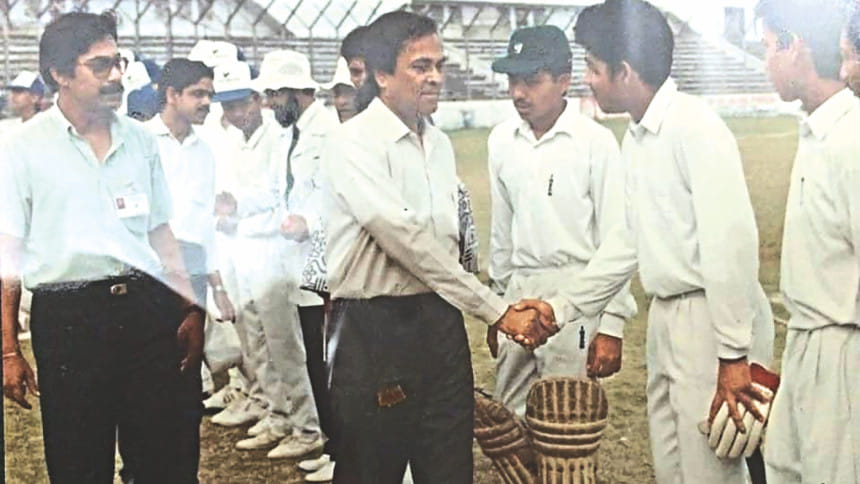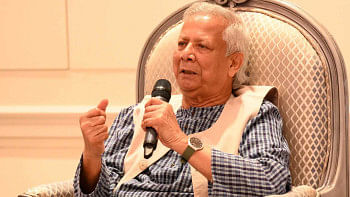The unsung hero of Bangladesh cricket

Reza-e-Karim, the former general secretary of the Bangladesh Cricket Board, was a shining beacon for the country's cricket. The history of Bangladesh's cricket cannot be put forward without noting the contributions of this giant. BCB director Ahmed Sajjadul Alam Bobby reflects on the life of the unsung hero, who passed away yesterday, leaving Bangladesh with a future to relish.
A legendary organiser, Reza bhai spent all his life with cricket. I remember the time when the EPSF (East Pakistan Sports Federation) used to run all sporting activities before the independence of Bangladesh and Reza bhai has been involved with cricket from that period.
During the Pakistan period, there were no separate headquarters for various sports. What is now the National Sports Council (NSC) was once the headquarters of the EPSF and on the ground floor was a conference room where the cupboards would each represent one of the national sports bodies like the hockey federation, the cricket board, the football federation and others.
One has to understand that cricket back then was not a very popular sport in the Bangladeshi scenario. It was, at best, a second-tier sport or even lower. It was a not an apt time to be involved with cricket since there was no money in the game and even a cup of tea had to be bought with one's own money.
In this state, people like Reza bhai and Raisuddin Ahmed took the initiative to move the country's cricket forward diligently. That cupboard was the cricket board and their activities were all related to those files in the cupboard. Late in the afternoon, the people in charge of the different federations would gather in the common room just as teachers do in schools or universities and there were times that Reza bhai was seen working on cricket-related papers with only the light from a candle to help him.
Reza bhai, who used to play cricket and participated in organising clubs, had also umpired First Division matches, where the rivalry was fierce. Many of the clubs had an army of supporters and not many umpires were interested in officiating the matches. Reza bhai would don an apron and a hat to get on the field. He was always well-respected by the clubs and not only did he maintain standards on the field, but also acted as a mediator from the cricket board's side to resolve conflicts between clubs.
Muzzafar Hossain Paltu, the first general secretary of BCB, Raisuddin and Reza himself worked tirelessly to keep cricket going when there was no money to work with following the liberation war. It was a difficult time to organise cricket, with the country in tatters following the war. But through their initiatives, they were able to start the Dhaka League in an independent Bangladesh.
Cricket is an expensive game if you think about it. You need clothing, bats, balls, stumps and also refreshments for the players. They were able to reintroduce cricket through their organisational skills and even though the country was financially stressed after the war, in 1974 the first league was completed. Then in 1977, Ted Clark's MCC (the first cricket team to tour Bangladesh) visited Bangladesh to play a series of matches and it became apparent that there was a support for cricket among the general populace as people turned out in droves. That love from people was what they capitalised on to pave the way for Bangladesh to get ICC's associate membership.
We then played in our first-ever international tournament during the ICC Trophy in 79' at England and Reza bhai was the assistant manager of the side. So, he was a member, joint secretary, treasurer, vice-president and later on acted as the general secretary as well. His contribution to cricketing laws is tremendous too and, along with journalist Ataul Haque Mollik, we published MCC's 'laws of cricket' in Bangla which was distributed throughout the country.
In Kenya in 1994 we lost the ICC Trophy but prepared for the 1997 edition, knowing that matches would be played on astroturf. We brought three astroturfs with Reza bhai's foresight and Rais bhai's (former director of Bangladesh Biman) influence, the latter helping to bring them in for free from England on Biman flights. We played the league for two seasons on astroturf and it had a huge impact on us winning the 1997 ICC Trophy -- the turning point for our cricket and also how we got to where we are now -- and later playing the World Cup.
Reza bhai has left us but he has left us and Bangladesh cricket with many of his contributions. He has departed with our love but there is a lot of history of Bangladesh cricket which he has taken with him and we couldn't know them. We only learnt from our personal dealings and from watching him at work. He is the dedicated, knowledgeable, unsung hero of Bangladesh cricket.

 For all latest news, follow The Daily Star's Google News channel.
For all latest news, follow The Daily Star's Google News channel. 



Comments